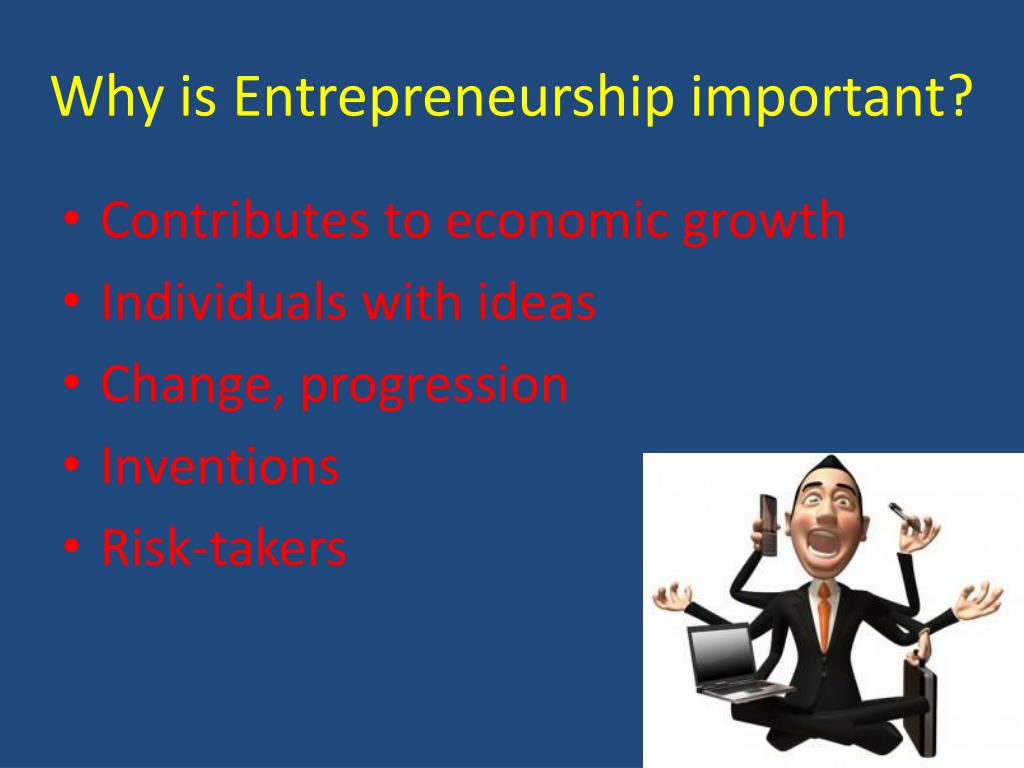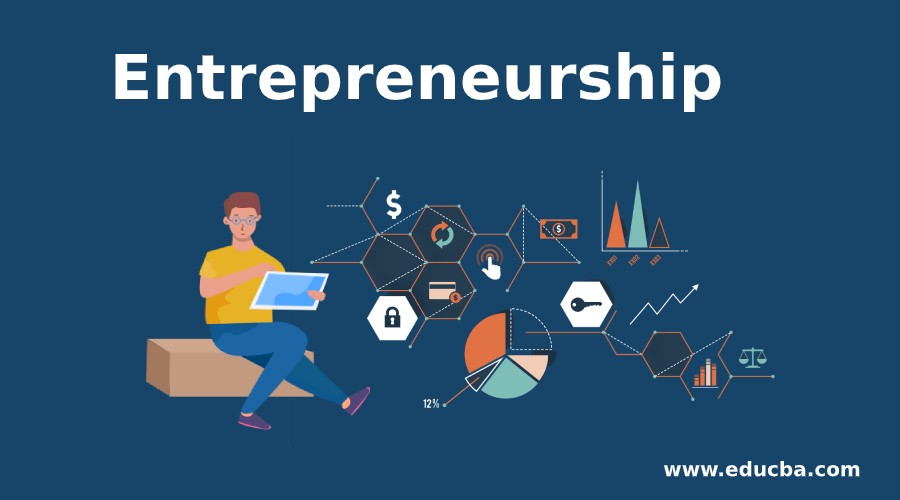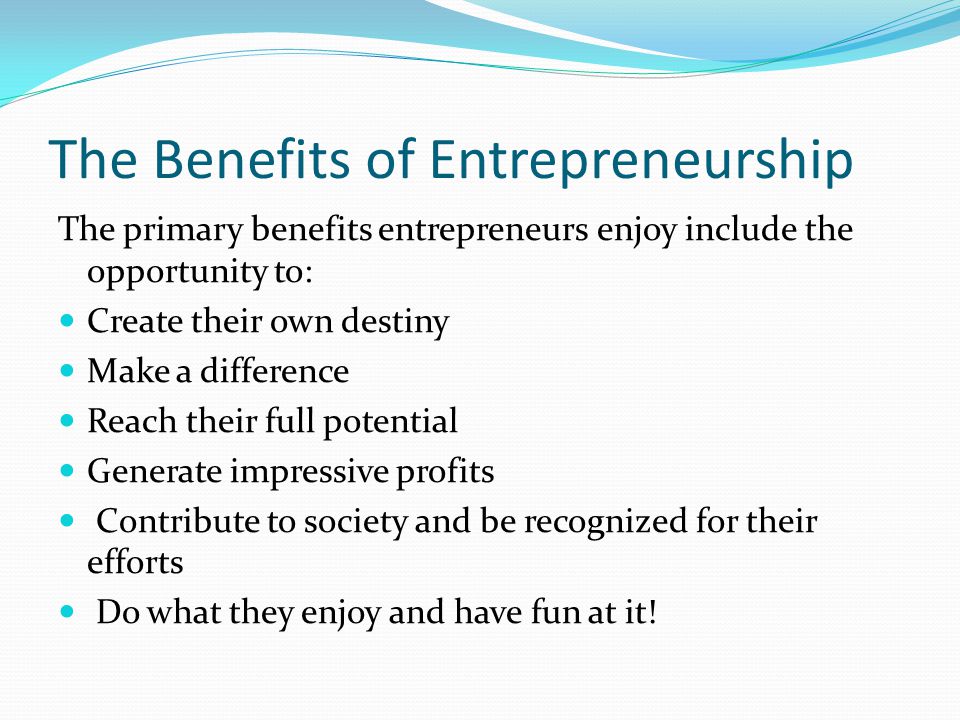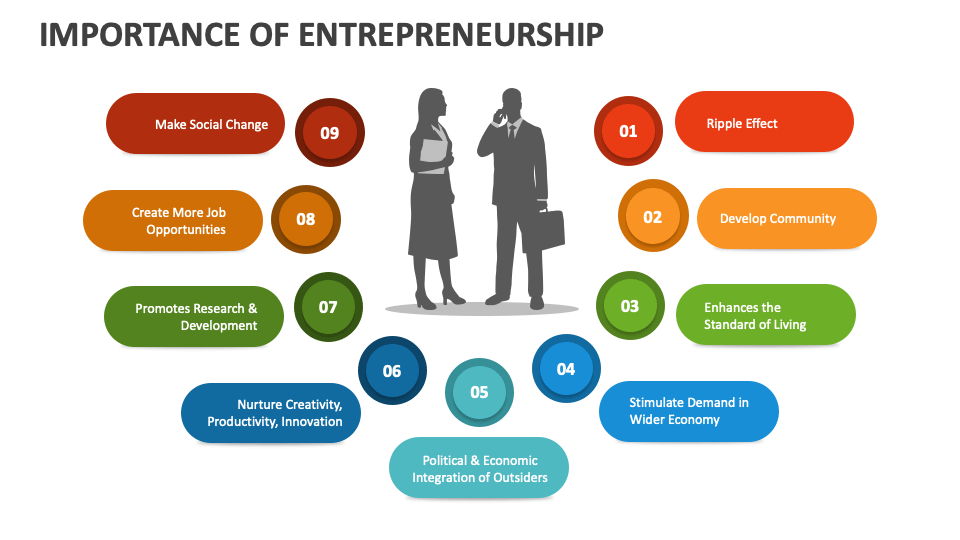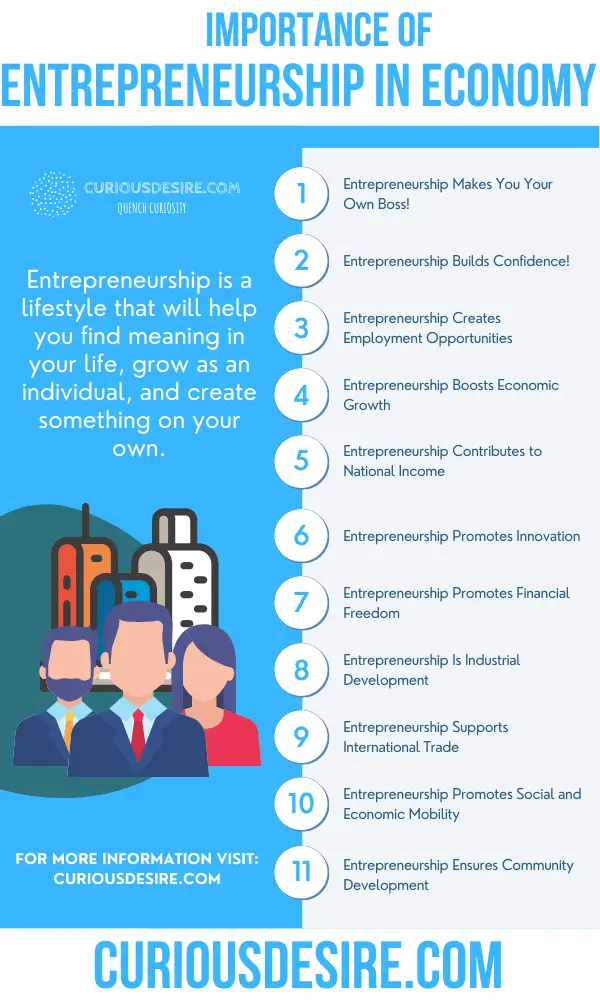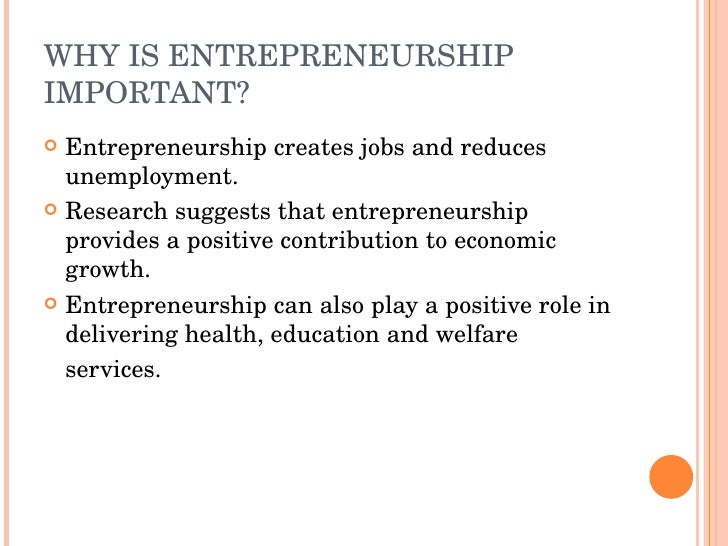Entrepreneurship Why Is It Important
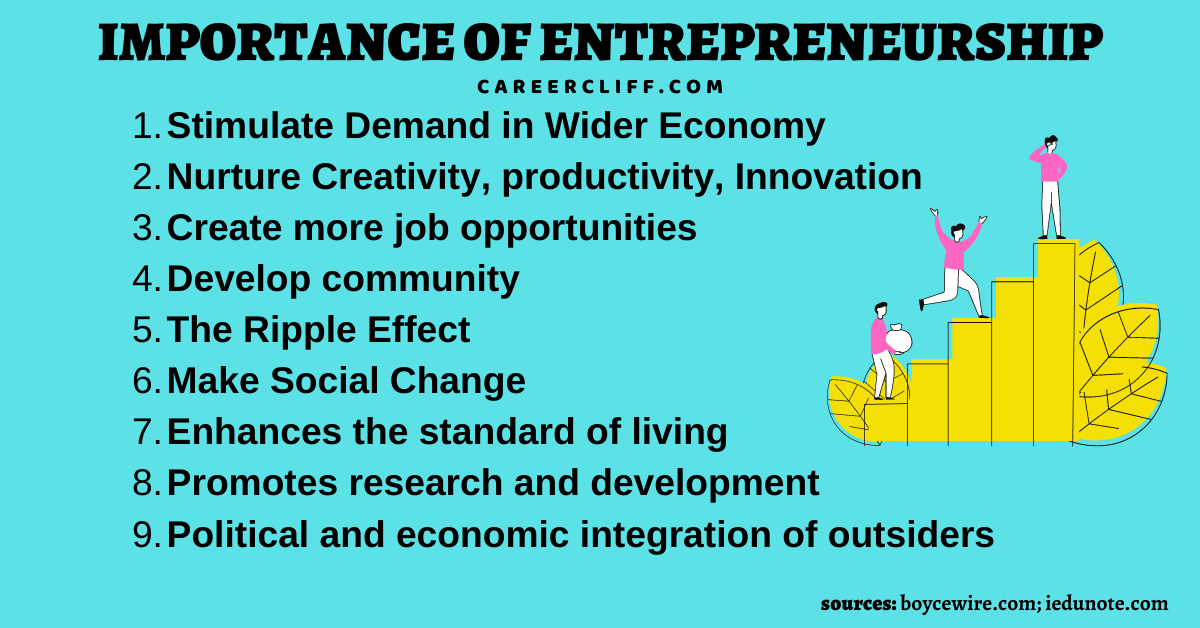
Imagine a small bakery, nestled on a quiet street. The aroma of freshly baked bread wafts out, drawing in passersby. Inside, the owner, a former accountant, beams as she serves a customer her signature sourdough. This isn't just a bakery; it's a testament to the power of an idea, nurtured and brought to life.
At its core, entrepreneurship is the engine of progress, the driving force behind innovation, job creation, and economic growth. But beyond the statistics and economic jargon, it’s about individuals daring to dream, taking risks, and building something of their own, enriching both their own lives and the communities around them.
The Spark of Innovation
Entrepreneurship isn't just about starting a business; it's about identifying a problem and creating a solution. These solutions can range from a groundbreaking technological advancement to a simple, everyday product that makes life a little easier.
Consider the rise of e-commerce. It began with a few individuals recognizing the potential of the internet to connect buyers and sellers across the globe. Today, it's a multi-trillion dollar industry that has transformed the way we shop and live.
The World Economic Forum consistently highlights innovation as a critical driver of economic competitiveness, and entrepreneurship fuels that innovation by providing a platform for new ideas to be tested and refined.
A Catalyst for Job Creation
Established businesses, while crucial, often maintain relatively stable workforces. New businesses, however, are often the primary source of job creation. As they grow and expand, they require more employees, stimulating employment opportunities within their communities.
The U.S. Small Business Administration (SBA) reports that small businesses create about two out of every three new jobs in the United States. This underscores the significant role that entrepreneurship plays in fostering economic prosperity and reducing unemployment.
Furthermore, entrepreneurial ventures often create diverse types of jobs, ranging from highly skilled technical positions to entry-level service roles, catering to a wide range of skill sets and experience levels.
Empowering Individuals and Communities
Beyond the economic benefits, entrepreneurship empowers individuals. It provides an opportunity to pursue passions, develop new skills, and achieve financial independence.
For many, starting a business is about more than just making money; it's about creating something that aligns with their values and contributes to their community. A local organic farm, a community art studio, or a social enterprise addressing a pressing social issue – these are all examples of businesses that are driven by a desire to make a positive impact.
Entrepreneurship also fosters a sense of community. Local businesses often sponsor community events, support local charities, and contribute to the unique character of their neighborhoods.
Overcoming Challenges
The path of an entrepreneur is rarely easy. It's filled with challenges, setbacks, and uncertainties. Access to capital, regulatory hurdles, and the sheer hard work involved in building a business can be daunting.
However, these challenges often breed resilience, creativity, and a strong sense of determination. Entrepreneurs learn to adapt, persevere, and seek support from mentors, advisors, and fellow entrepreneurs.
Organizations like SCORE and local chambers of commerce provide invaluable resources and guidance to aspiring entrepreneurs, helping them navigate the complexities of starting and running a business.
A Future Built on Innovation
As we look to the future, entrepreneurship will continue to play a vital role in shaping our world. From developing sustainable energy solutions to addressing global health challenges, entrepreneurs will be at the forefront of innovation.
Encouraging and supporting entrepreneurship requires a multi-faceted approach, including providing access to education, funding, and mentorship opportunities. It also requires creating a regulatory environment that is conducive to innovation and risk-taking.
Ultimately, the success of future generations hinges on our ability to foster a culture of entrepreneurship, where individuals are empowered to pursue their ideas, create value, and contribute to a more prosperous and equitable world.
So, the next time you walk past that small bakery, remember that it represents more than just a place to buy bread. It represents the spirit of entrepreneurship, the power of dreams, and the potential for each of us to create something meaningful.

